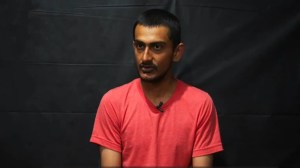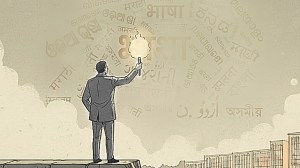Stay updated with the latest - Click here to follow us on Instagram
Justin Trudeau’s timeline: Major milestones leading to his resignation
Trudeau, son of former Liberal Prime Minister Pierre Trudeau, assumed leadership of the Liberal Party in 2013 at a time when it was struggling.

Canadian Prime Minister Justin Trudeau announced on January 6 that he would step down as the leader of the Liberal Party and as prime minister once his party selects a successor.
Here is a timeline of key events charting Trudeau’s political journey:
October 2013 – Wins race to lead Liberal party
Trudeau, son of former Liberal Prime Minister Pierre Trudeau, assumed leadership of the Liberal Party at a time when it was struggling. The Liberals were in third place in the House of Commons, having been out of power for over seven years.
October 2015 – Leads party to victory in federal election
Trudeau led the Liberals to a majority victory in the 2015 federal election, defeating the Conservatives with a campaign focused on change and hope.
December 2017 – Found guilty of conflict of interest
Canada’s ethics commissioner found Trudeau guilty of breaching conflict-of-interest rules by accepting vacation, gifts, and flights from the Aga Khan in 2016. This marked the first time a sitting prime minister was found guilty of such a violation.
 In June last year, The Liberals lost one of their safest seats in a special election in Toronto. (Photo: The Canadian Press via AP)
In June last year, The Liberals lost one of their safest seats in a special election in Toronto. (Photo: The Canadian Press via AP)
February 2019 – SNC-Lavalin scandal
Trudeau faced accusations of pressuring former Justice Minister Jody Wilson-Raybould to intervene in the prosecution of construction firm SNC-Lavalin. The scandal led to resignations within his cabinet. In August 2019, the ethics commissioner ruled that Trudeau had breached ethics rules. He took responsibility but did not apologize.
September 2019 – Blackface scandal erupts ahead of election
In the run-up to the 2019 election, images surfaced showing Trudeau in blackface. The scandal forced him to apologize, acknowledging his “blind spot.”
October 2019 – Liberals reduced to minority in House
In the October 21, 2019 election, the Liberals were reduced to a minority government, forcing Trudeau to rely on opposition parties to pass legislation.
August 2020 – Finance Minister Morneau resigns
Finance Minister Bill Morneau resigned amid tensions with Trudeau over pandemic recovery funding. Morneau was also criticized for his ties to a charity involved in a student grant program.
 In September last year, the New Democratic Party (NDP), which had been a reliable ally in securing Trudeau’s government, withdrew its support. (Photo: the Canadian Press via AP)
In September last year, the New Democratic Party (NDP), which had been a reliable ally in securing Trudeau’s government, withdrew its support. (Photo: the Canadian Press via AP)
September 2021 – Failed bid to win back majority in House
Trudeau called a snap election in September 2021 in an attempt to regain a majority. However, the election results gave him a second consecutive minority government.
July 2023 – Polls show Liberals steadily losing popularity
Polls showed a widening gap between the Liberals and Conservatives, suggesting the Liberals could lose the 2025 election.
June 2024 – Liberals suffer bad defeat in special election
The Liberals lost one of their safest seats in a special election in Toronto. Trudeau announced his intention to remain in office despite ongoing questions about his future.
September 2024 – Key ally NDP withdraws automatic support
The New Democratic Party (NDP), which had been a reliable ally in securing Trudeau’s government, withdrew its support. This required Trudeau to seek new alliances but did not immediately trigger an election.
November 2024 – Trump pledges tariffs on Canada, Mexico
US President-elect Donald Trump announced that he would impose a 25% tariff on all imports from Canada and Mexico.
December 16, 2024 – Finance Minister and Deputy PM Freeland resigns
Finance Minister Chrystia Freeland resigned after Trudeau demoted her from her position. Freeland had clashed with Trudeau over spending priorities and responses to potential US tariffs.
December 20, 2024 – NDP promises no-confidence motion
NDP leader Jagmeet Singh announced plans to present a formal motion of no confidence after the House of Commons resumed in January 2025. The Bloc Québécois leader also promised to back the motion.
January 6, 2025 – Trudeau says he will step down
Trudeau announced that he would resign once the Liberal Party selects a new leader. He expressed regret about Canada’s election system and wished that reforms had allowed voters to select second or third choices on the same ballot.
(With inputs from Reuters, Toronto Star, iPolitics)
- 01
- 02
- 03
- 04
- 05































